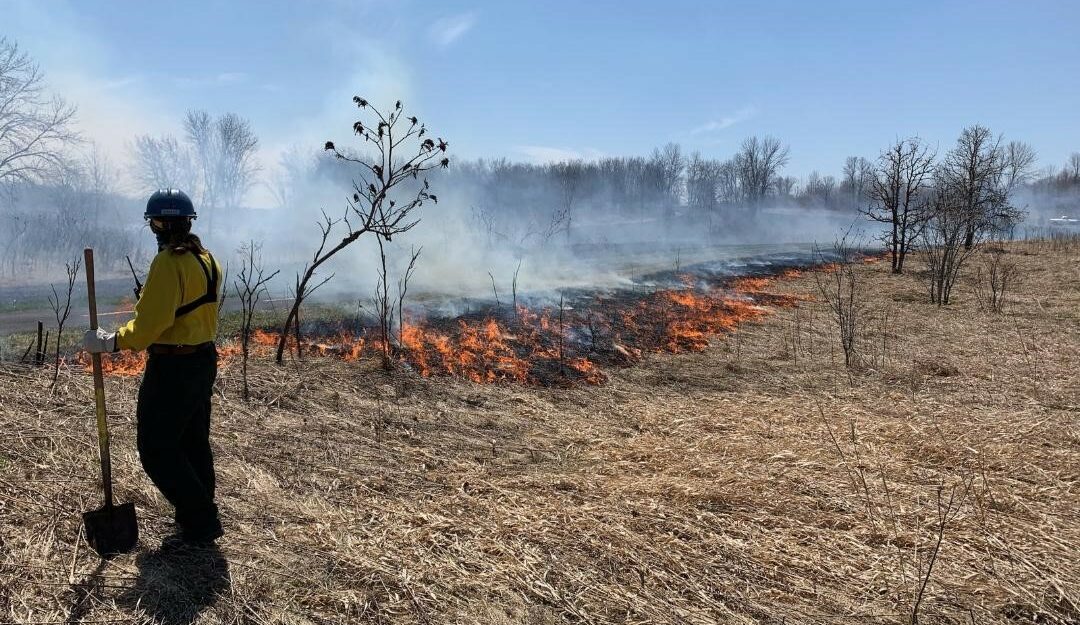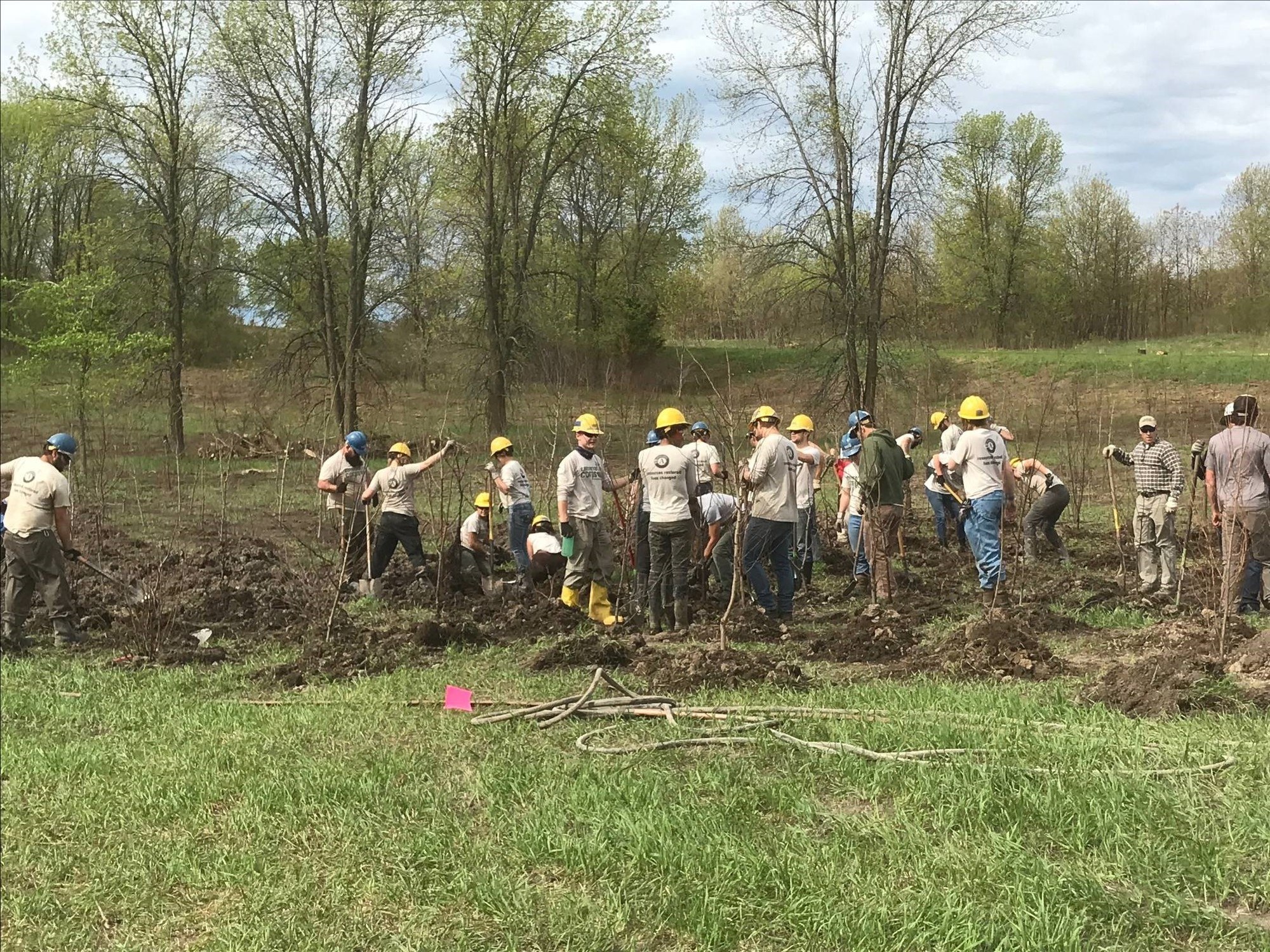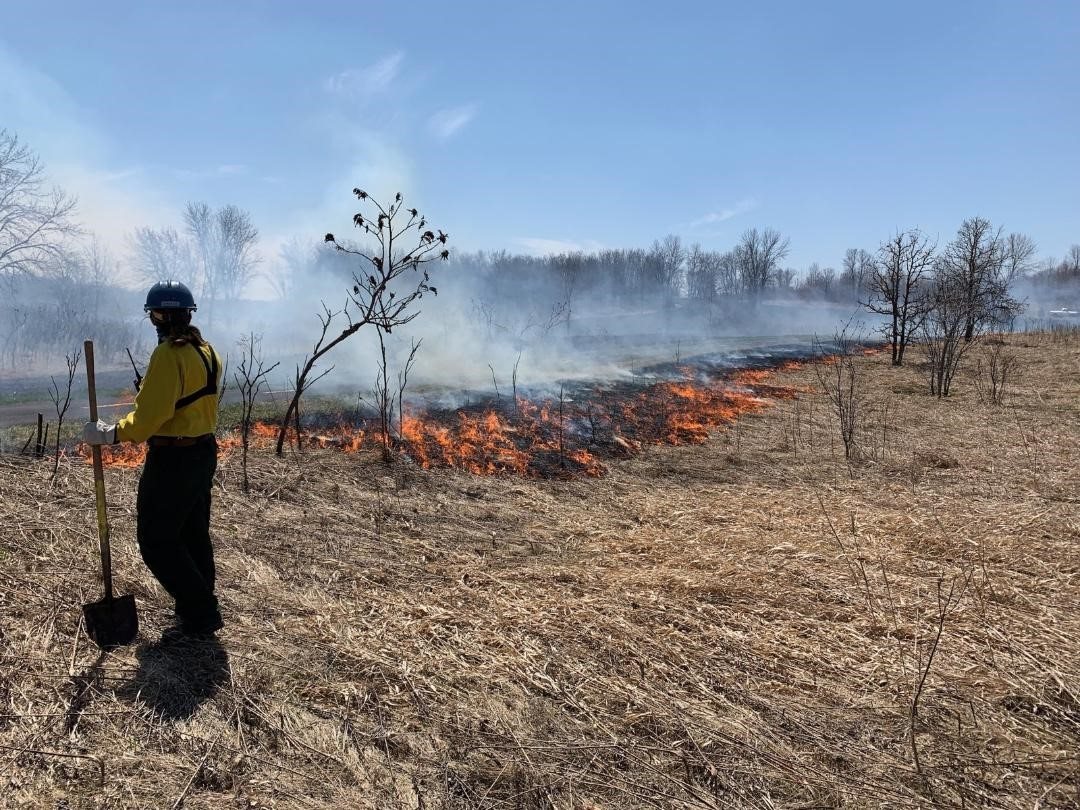A quagmire of value

by Caroline Fazzio, central district crew leader/ AmeriCorps member

I have written multiple blogs over the past two years describing many unique experiences I have encountered at the Conservation Corps. From snorkeling with the DNR’s aquatic invasive species team to planting thousands of trees with Three Rivers Parks District, there have been a multitude of interesting and exciting experiences to share. However, recently I have been pondering a different kind of experience—one that is not always sunshine and rainbows, but promotes the kind of skills not always acknowledged as necessary. They are far more abstract than the technical skills often associated with the Corps, so bear with me as I attempt to unwrap a deeper level of the Corps member experience.
For all the fun and engaging days at the Corps, there are just as many days where I leave work completely drained, and the idea of quitting is appealing compared to the thought of doing it all over again the next day. Sometimes it is the weather, sometimes it is the project, and sometimes it is a poor combination of the two, but at the end of the day everyone is exhausted, grouchy, and ready to be done. Who can blame us?—picking up sticks in a field in the pouring rain for multiple hours will frustrate anyone, regardless of their positive mental attitude (yes, that is a project we have done this year). Frustrations can hinge on anything—leaving a project half finished, the pace of the work, not enough crews in the field, too many crews in the field, lack of clear direction, too much direction, misunderstood sarcasm, not enough sarcasm, etc. That is just a short list of the frustration triggers I have noticed this year. Dealing with all these in addition to the arduous work and the unpredictable weather conditions is enough to physically, mentally, and emotionally tax anyone.
I bring this up to point out that CCMI terms are not always sunshine and rainbows. Regardless of what position you have, it can be physically demanding, mentally strenuous, emotionally draining, or all three. There are many days where it just does not seem worth it.
So is it worth it?
One could try to answer this question by comparing base level stats such as the technical training Corps members receive versus the stipend they earn, but I want to go a little deeper. Consider instead three broader traits: that we must work closely with others regardless of whether we like them or agree with them; that we work in foreign environments such as sub-freezing temperatures or imposing government offices; and that we get very little say in the work projects we are tasked with completing. All of these characteristics lend themselves well to work-place frustration, but they also promote a kind of growth that goes beyond mere technical experience.
Think about it: in every work place you will encounter coworkers you do not like or agree with, unexpected situations that you are unprepared for, and projects that drive you insane. To be successful, you need to know how to handle these situations without losing your sanity along the way. At the Corps we deal with all of these, but at their most extreme. Therefore, being successful at the Corps infers you are also gaining experience in these soft skills that are so often disregarded, but are incredibly invaluable for any future employment (or really life in general). Indeed, these skills are so useful, I would argue that dealing with all the aforementioned challenges of the Corps is well worth the payoff, even if that payoff is a skillset I cannot clearly define.
So is it worth it?
That is a question that everyone must answer for themselves, but before you do, remember that every challenge and struggle comes with an opportunity for growth or for learning. Only by accepting those challenges and working through them may you discover a payoff far greater than what you might have imagined. The value of each day may be lost in a quagmire of bad weather, boring work, or annoying coworkers, but I assure you, it is there. Learning to identify worth within the muck is perhaps the most valuable lesson the Corps has taught me, and I would not trade a single bad day in the field for it.
